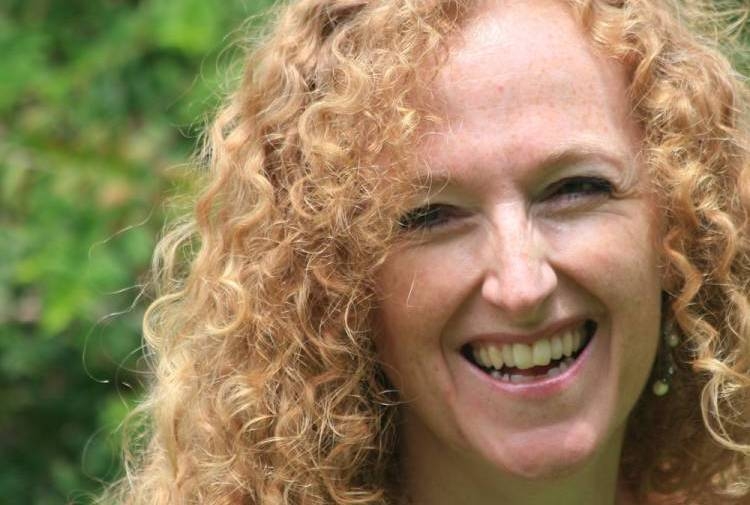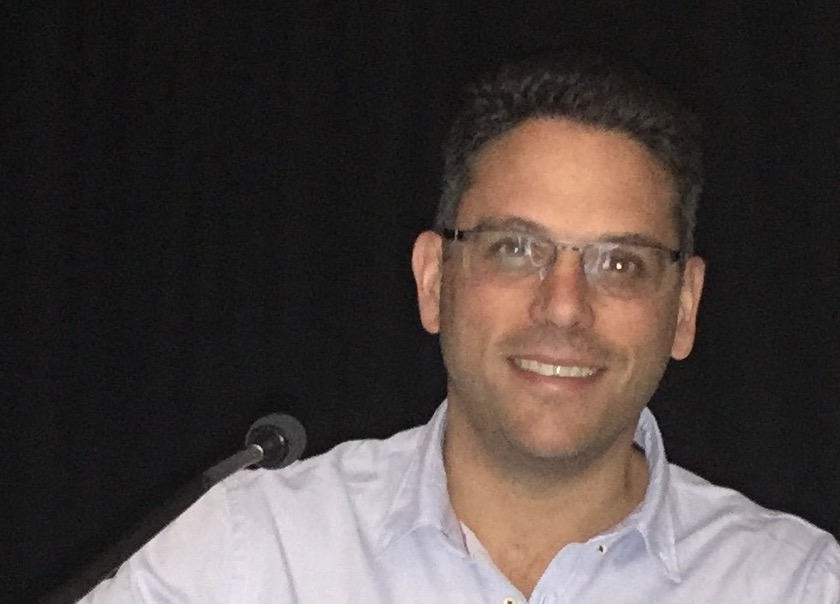
CN&CO & the psychology of happiness

So much of happiness … CN&CO’s Thabs Royds
A few months ago, CN&CO’s Thabs Royds attended a talk at St Stithians delivered by Sue Langley of the Langley Group Institute. The session focused on positive psychology and the impact it has on attitudes and behaviour in all spheres of life.
“A few of the take-outs for me include the fact that we need to understand our behaviour according to our ups AND our downs, and not just our downs,” she said. “Plus, we need to aim a bit higher! Langley said we often look at fixing things to get ourselves back to ‘fine’, when in fact we should strive to live in a place (mentally and emotionally) where things are awesome.”
The Langley Group Institute is an Australian-based training organisation that focuses on positive psychology and wellbeing. The institute actually offers a Diploma of Positive Psychology and Wellbeing, which its website describes as “… the first nationally accredited training designed for coaches, psychologists and busy professionals who want to learn how to apply positive psychology in their work and lives, informed by research and best practice.”
The website continues: “Our team live and breathe positive psychology, bringing real world understanding of what it takes to inspire people to create flourishing workplaces, communities and lives.”
The precepts of positive psychology are founded in neuroscience, which means it’s a biological (and empirical) concept, rather than just a bunch of touchy-feely theories designed to make people feel better about feeling better.
“Our brains need dopamine to fuel our prefrontal cortex, which is where happiness is experienced,” explained Sue during her Saints talk. “When we are in fight-or-flight mode – typically not a happy place! – our dopamine levels drop and our adrenaline and cortisol levels rise.”

Sue Langley of the Langley Group Institute looking very happy indeed! 🙂
Adrenaline and cortisol are typically associated with stress.
“Your body performs at its best when you are in your best mood. In addition, intellectual ability is governed by our emotions. So if we want people to learn, we shouldn’t make them feel stupid. We should make them feel good.”
Psychologist Kevin Distiller, MD of Odyssey Talent Management (a CN&CO client), says humans have been tracking the pursuit of happiness, both psychological and philosophical, for thousands of years.
“As far back as 2 500 years ago, great philosophers such as Confucius, Buddha, Socrates, and Aristotle were asking questions about the meaning of life and happiness,” he says. “Interestingly, however, the Positive Psychology movement is a relatively recent development.”
The person most widely credited with creating the positive psychology movement is Martin E P Seligman, a professor at the University of Pennsylvania. In 1988, after decades of experimental research and success with his learned helplessness theory (which holds that people and animals can become conditioned to accept negative situations, and eventually stop trying to avoid them), Seligman was appointed president of the American Psychological Association (APA).
“It was during his inauguration at the 107th Annual Convention of the APA in Boston on 21 August 1999 that Seligman decided to introduce his agenda to correct the trajectory of modern day ‘pathologically focused’ psychology,” says Kevin.

Smiles from Kevin Distiller of Odyssey Talent Management
In other words, he introduced a field of psychology that focuses on what makes people happy, rather than merely examining dysfunction.
So what exactly is “Positive Psychology”?
“I think I can explain it best as a branch of psychology that aims to understand, test, discover and promote the factors that allow individuals and communities to thrive,” says Kevin. “Positive psychology focuses on wellbeing, happiness, flow, personal strengths, wisdom, creativity, imagination and characteristics of positive groups and institutions.
“Furthermore, the focus is not just on how to make individuals happy, potentially giving rise to a self-centered, narcissistic approach, but on happiness and flourishing at a group level as well.”
Although the principles of positive psychology may sound fluffy and light, Kevin points out that recent psychological and neuroscience research into how the human brain operates provide empirical evidence of the value of positivity on individual happiness, productivity and effectiveness.
“When the theories behind social psychology, collective consciousness and culture are added to the conversation, it becomes clear why there is such a desperate need in the VUCA* world of today to take cognisance of positive psychology in our everyday lives,” he says.
Measuring the effects of positive psychology
Evalex/OMT managing director, Hendrik Bronkhorst, is an industrial and organisational psychologist who, among other things, works in the field of psychometric testing. (Evalex is also a CN&CO client with relationships spanning back close to 20 years!)
Since the early 1980s, Hendrik and his team have researched and developed a substantial database of psychometric and behavioural competencies, some of which indicate factors that can either inhibit or enhance an individual’s performance in the workplace.
“We have identified 44 specific, measurable traits that contribute towards an employee’s performance or delivery levels in the workplace,” he says.
And many of these are influenced by an individual’s level of happiness.
“For example, a person’s energy levels, ability to focus, and resilience in the face of setbacks correlate positively to how happy they are in general.
“Individuals with high energy levels tend to be quick to act in relation to others. They are more likely to take initiative, be quick off the mark, and put pressure on themselves to get things done. They like a fast pace, and tend to be more ambitious and driven.
“Focused individuals are persistent, resilient and tenacious. They stick to the plan and follow through until the job is complete.
“Resilience in the workplace helps individuals to overcome struggles and setbacks. Resilient workers have the emotional energy to bounce back easily, and eagerly take on new challenges.”
Although no expert on the scientific and psychological aspects of the happiness-to-productivity ratio, CN&CO’s chief señor, Carel Nolte, says he has seen it in action…
“… and I believe in it 100%!” he says. “Our company was set up a few years ago as a lifestyle business, which means people are free to tend to the various aspects of their lives – including work – according to their own schedules.

Happy Carel!
“From a professional perspective, our goal is to get the job done – and to do it better than anyone else can. This principle is summed up in our philosophy that ‘1+1 should always equal 22 or more’.
“The important thing is balance. Sometimes we focus more on the business aspect, and sometimes more on the lifestyle aspect. The trick is to incorporate the two so that neither is compromised. In fact, they should actually enhance each other so that we end up doing better business while enjoying enriched lifestyles.
“At times we work through the night to get things done. At other times we take time out to recuperate and build up our dopamine levels so that we can be happier – and hence more productive, as the science has shown us we will be!”
The CN&CO team will soon be heading off to the tropical island of Bintan in Indonesia to recharge those dopamine levels.
“We are taking some time out to reboot, reflect and recharge our batteries at the fabulous Club Med resort on Bintan Island. In supporting our client Club Med, we also benefit from its all-inclusive policy. Plus, the recent weakening of the rand didn’t affect us at all, as Club Med doesn’t adjust prices when that happens – unlike many other operators.
“Apart from recharging batteries, having different spaces to think in, reading and chatting to new people on our trip, I am mostly excited at the opportunity of creating shared experiences and memories with the CN&CO team. I have no doubt we will come back excited to add even more value during these very tough economic times, with and for all our clients.”
*VUCA is a trendy acronym for volatility, uncertainty, complexity and ambiguity.
Here’s where we’ll be… (in our happy place!)










